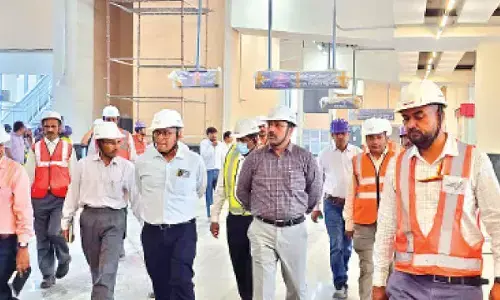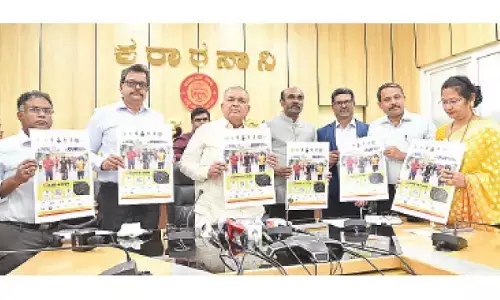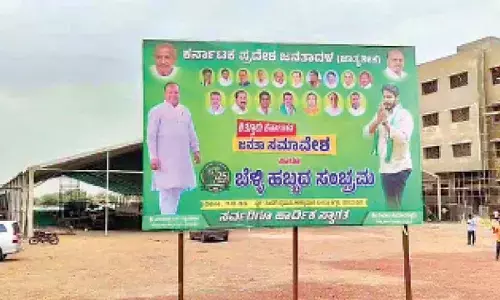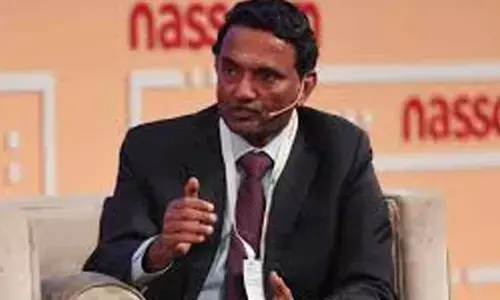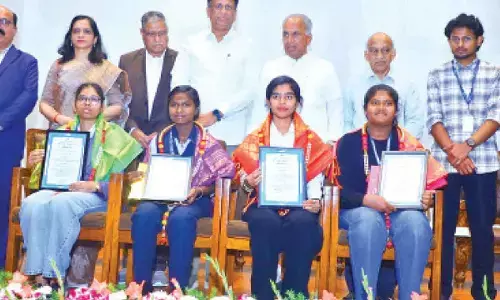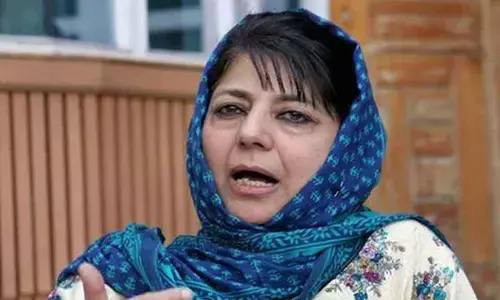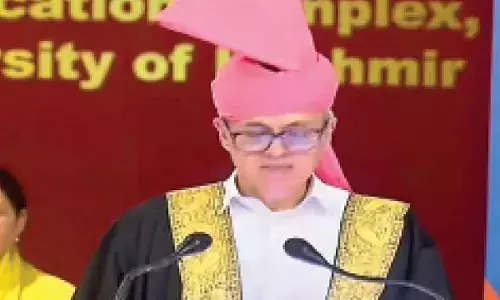They fear not cannons, but pens
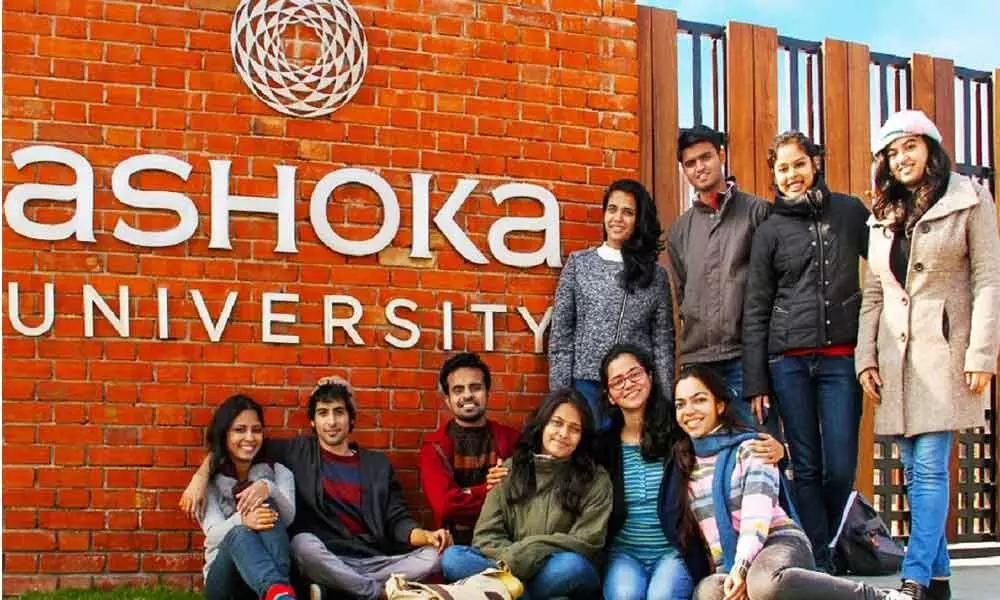
They fear not cannons, but pens
The levels of academic freedom we have in India now, is not unknown to many of us. Accordingly, in 2020, the U.S. NGO Freedom House has down-ranked India's academic freedom score from three to two out of a possible four, "due to rising intimidation in recent years that is aimed at controlling academic discussion of politically sensitive topics."
The abuse of sedition, anti-terror laws, preventive detention clauses, criminal defamation prosecutions to intimidate academicians, journalists and activists is rampant in our democracy. People should not be enlightened and empowered. They should engage fully in fighting for emotions, Gods and Demons.
Rulers are not threatened by bullets of enemy's army but a few pens of knowledgeable persons who could enlighten the unempowered citizen to fire a possibility of protest.
Before the citizens of India faced the high potential of the New Education Policy 2020, they have tasted it in loss of academic freedom even in a private university.
Two professors one after the other resigned from famous institution Ashoka University, complaining the suffocating atmosphere caused by the 'pressures' against their freedom of speech and expression.
Evan a private university, which is supposed to be independent of the Centre or State government, is not so. The public-funded University is also expected to have functional autonomy and liberty of thought. The education to grow to higher levels should have higher level of freedom. Nobody should be pressurised for expressing his ideas or opposing a policy.
Pratap Bhanu Mehta, known for his outright expression wrote to his Vice-Chancellor, of Ashoka University, chose to quit saying "My public writing in support of a politics that tries to honour constitutional values of freedom and equal respect for all citizens, is perceived to carry risks for the university".
On the face of it, it is clear that it is not voluntary resignation. It is caused by something which is obvious but also a top secret. If a private university of high eminence cannot secure a professor of independent thoughts, one can imagine the plight of professors in public universities.
The letter runs thus:
To
Prof. Malabika Sarkar,
Vice- Chancellor, Ashoka University
Sonepat
Dear Prof Sarkar,
I write to tender my resignation from Ashoka University as University Professor. After a meeting with Founders, it has become abundantly clear to me that my association with the University may be considered a political liability. My public writing in support of a politics that tries to honour constitutional values of freedom and equal respect for all citizens, is perceived to carry risks for the university.
In the interests of the University, I resign. I would request that the resignation take immediate effect. I am teaching one class and would not like to leave the students stranded. But I think the university can find a solution. I can informally finish out the rest of the classes, if no other solution is found.
It has been a great privilege to get to know the students and several wonderful colleagues at Ashoka. I hope that the institution continues to thrive. I thank you and the Chancellor for your personal kindness over the years of my association with Ashoka.
It is clear it is time for me to leave Ashoka. A liberal university will need a liberal political and social context to flourish. I hope the university will play a role in securing that environment. Nietzsche once said that "no living for truth is possible in a university."
I hope that prophecy does not come true. But in light of the prevailing atmosphere, the Founders and the Administration will require renewed commitment to the values of Ashoka, and new courage to secure Ashoka's freedom.
My only request is that the administration cooperate in making all the transition formalities as painless as possible. If any arrangements can take due consideration of my driver, Gajendra Sahu, I will be most grateful.
He moved jobs with me and should not be penalised. If some interim help can be granted to him, while I make alternative arrangements to transfer him to an appropriate payroll, I shall be obliged.
I will forever remain a supporter of the values Ashoka is meant to embody. Please convey my deepest gratitude to all of Ashoka's faculty, students and staff. They have all been unfailingly professional, supportive and generous.
I will have a hard copy with my signature sent to you as well. But this mail be treated as my resignation.
With warmest personal regards,
Pratap Bhanu Mehta
Cc: Chancellor, Rudrangshu Mukherjee
Ashoka was founded in 2014. It is called Ivy League of India. It is a privately funded university. It is learnt that Mehta was told in a meeting that his criticism of the government was threatening the planned expansion of the university. The employee who was present during the conversation pleaded anonymity for fear of job loss.
Mehta's resignation was followed by another reputed personality's withdrawal from the Ashoka University. Following is the letter of Arvind Subrahmaniam, who felt devasted by the presence of circumstances that led to resignation of Mehta. He wrote "that someone of such integrity and eminence, who embodied the vision underlying Ashoka, felt compelled to leave is troubling."
He further observed: "That even Ashoka – with its private status and backing by private capital – can no longer provide a space for academic expression and freedom is ominously disturbing. Above all, that the University's commitment to fight for and sustain the Ashoka vision is now open to question makes it difficult for me to continue being part of Ashoka".
Dear Malabika,
As you know, I came to Ashoka University with the aim of teaching students and building a centre for economic policy to build our national capacity for high-quality research, analysis and communication.
With the University's support, especially of key trustees, the Centre has been taking shape – with events, research projects, teams of talented researchers, and resources – beyond what I could have hoped for, especially considering the pandemic-induced constraints.
The exciting sense was growing that some of our long-term goals would be achieved. And I was really enjoying getting to know and work with the brilliant students and colleagues of Ashoka.
However, the circumstances involving the "resignation" of Professor Pratap Bhanu Mehta, who is not just a dear friend but a truly inspirational national figure, have devastated me. I am acutely aware of the broader context in which Ashoka and its trustees have to operate and have so far admired the University for having navigated it so well.
But that someone of such integrity and eminence, who embodied the vision underlying Ashoka, felt compelled to leave is troubling. That even Ashoka – with its private status and backing by private capital – can no longer provide a space for academic expression and freedom is ominously disturbing.
Above all, that the University's commitment to fight for and sustain the Ashoka vision is now open to question makes it difficult for me to continue being part of Ashoka.
So, it is with a sense of deep regret and profound sadness that I am writing to submit my resignation from the University which will take effect from the end of this academic year. I wish you and the University, and especially its gifted and motivated students – who are the heart of Ashoka – success in the future.
Sincerely,
Arvind
PS: As a courtesy to my colleagues in the Economics department, and in the interests of transparency, I will be sharing this email with them.
Billy Perrigo, wrote in Time, on March 19, "…two prominent academics stepped down from their positions at one of India's most respected universities this week, shining a spotlight on the state of academic freedom and a widening crackdown on dissent under the Hindu nationalist ruling party." The Time said: Mehta suggested that he had been forced to step down because of indirect pressure by the Indian government…. Arvind Subramanian, an economics professor at Ashoka who once served as chief economic adviser to Prime Minister Narendra Modi, also resigned from his position on Thursday in solidarity with Mehta, calling his treatment an affront to "academic expression and freedom."
It is sad that exercise of expression rights by professors deprived the students of their right to education from two eminent persons. Marketing, HR and managers are important for academic institutions, not the teachers. A university without committed teachers is a shop where education is sold for profit of marketing
(The writer is Professor of Law, Bennett University and former Central Information Commissioner)



